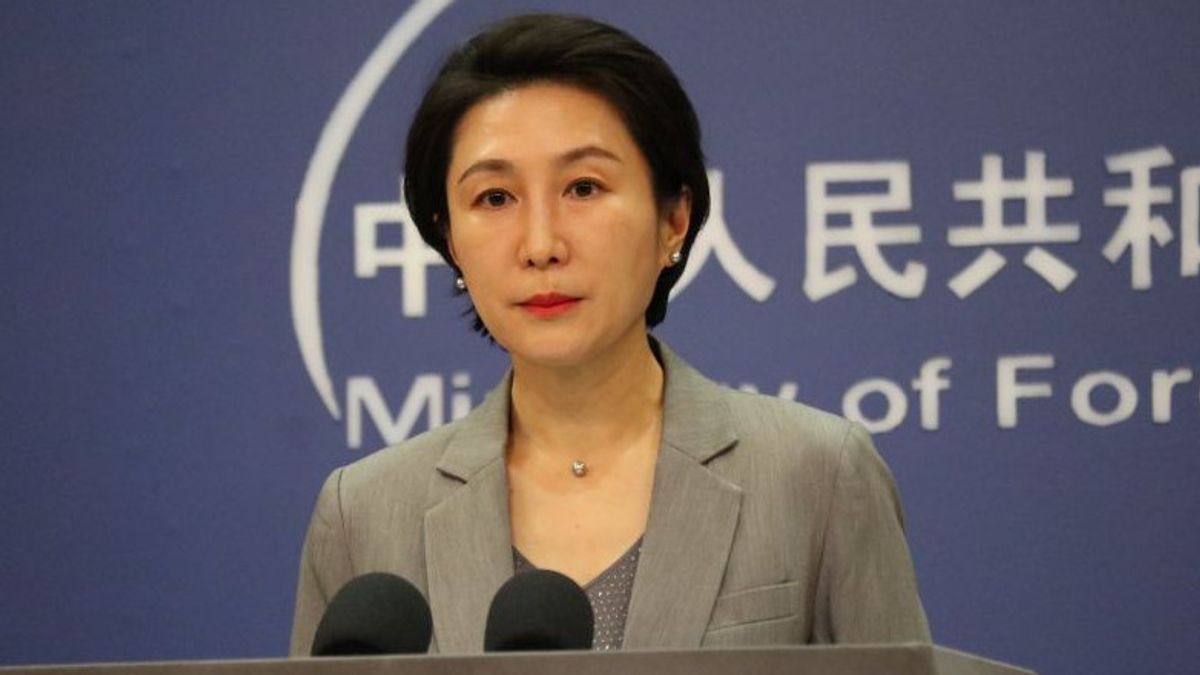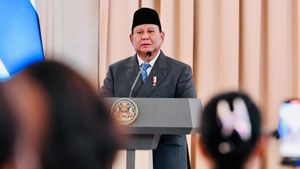JAKARTA - The Chinese government has again opposed the process of disposing of processed radioactive waste water from the Fukushima Nuclear Power Plant (PLTN) into the sea carried out by the Tokyo Electric Power Company Holdings Inc (TEPCO).
"The disposal is against international law and a very irresponsible act, China firmly opposes it and asks Japan to stop the wrong act," Chinese Foreign Ministry spokesman Mao Ning said when delivering a statement to the media in Beijing, China.
PLTN operator Fukushima, TEPCO, on Wednesday (28/2) began releasing radioactive processed water into the sea for the fourth time. In this cycle, there will be 7,800 tons of processed water dumped for about 17 days after ensuring the radioactive level of the latest pool of water meets the utility standards set by the government.
"Despite international concerns and opposition, Japan has dumped more than 23,000 tons of water from the nuclearly contaminated Fukushima nuclear nuclear nuclear nuclear power plant into the sea, spreading the risk of contamination around the world," added Mao Ning.
Moreover, the recent leak incident at PLTN Fukushima Daiichi, according to Mao Ning, where nuclearly contaminated water splashed into workers and leaked from the purification system showed TEPCO management weaknesses and lack of government oversight.
"The Japanese claim that the release was'safe' and'reliable' is inconclusive," said Mao Ning.
The leak occurred on February 7, 2024, with an estimated 5.5 tons (5,500) of radioactive water leaking before most of the radioactive elements were filtered in state-of-the-art facilities known as ALPS.
Due to the wastewater leak, TEPCO said there were no signs of contamination detected outside the facility. TEPCO also claims there were "no significant changes" in radioactivity monitoring posts around power plants.
"Disposal of water contaminated with Fukushima nuclear into the sea has an impact on the health of all mankind, the global marine environment, and the interests of the international public," said Mao Ning.
Japan, said Mao Ning, needs to take serious concerns from its domestic and international communities and deal with the disposal well, responsibly and constructively.
"China Japan is willing to work together fully in establishing independent international monitoring rules so that it remains effective in the long term and involves participation from neighboring Japan and other stakeholders in order to avoid the bad consequences of dumping wastewater into the sea," said Mao Ning.
Japan began releasing processed radioactive water from PLTN Fukushima Daiichi to the Pacific Ocean on August 24, 2023, with a first stage of disposal of 7,800 cubic meters or equivalent to water that filled three Olympic-sized swimming pools.
In total, Tokyo Electric Power Co (TEPCO) has gradually released 1.34 million tons of processed water waste from PLTN Fukushima until February 2024. TEPCO claims the wastewater is harmless and is very dilute in the sea, then dumped in stages for decades.
Before being released, the radioactive processed water was stored in a tank installed on site. The processed water has been diluted with seawater up to 1 per 40 concentrations permitted according to Japanese safety standards before being channeled through an underwater tunnel 1 kilometer from the power plant.
SEE ALSO:
The water has also gone through a liquid processing system that eliminates most of the radionuclides except for tritium, but now the volume is close to the capacity. The water contains tritium with low concentration and is considered less dangerous than other radioactive materials and other radionuclides to the environment as part of normal operations
PLTN Fukushima was destroyed by a major earthquake and tsunami in 2011, which killed 18 thousand people. The operation to clean up the facility is estimated to take decades.
The International Atomic Energy Agency (IAEA) also said Fukushima waste processed water was harmless after conducting environmental impact surveys, including by taking water and fish samples.
China's Customs Authority later banned imports of aquatic products, including aquatics that can be eaten from Japan since August 24, 2023. Based on data from the agency, China imported more than $500 million worth of seafood from Japan in 2022.
This was also done by Hong Kong and Macau. The import ban applies to products from 10 prefectures of Fukushima, Miyagi, Ibaraki, Tochigi, Gunma, Saitama, Chiba, Tokyo, Nagano and Niigata.
The English, Chinese, Japanese, Arabic, and French versions are automatically generated by the AI. So there may still be inaccuracies in translating, please always see Indonesian as our main language. (system supported by DigitalSiber.id)













